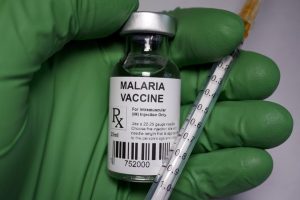Each year, nearly 400,000 individuals die as a result of malaria and the search for an effective vaccine has lasted decades due to the continuous evolution of the disease. However, in a recent breakthrough, researchers at the University of Oxford's Jenner Institute reported 77% efficacy in a developing malaria vaccine called R21.
R21 is much like the existing Mosquirix because it contains hepatitis B surface proteins that present part of a malaria protein through a virus-like particle representation. R21 looks to be a cheaper and more effective option than Mosquirix.
The vaccine is accompanied by the Novavax-made adjuvant Matrix-M that boosts the immune system. R21 targets the parasite while it's in the sporozoite phase in efforts to prepare the body with antibodies. The World Health Organization has set the efficacy for the malaria vaccine at 75%. Although not enough information has been collected on R21, this new vaccine appears promising.
Most of the deaths caused by malaria are in young children in Africa. The study took place in Burkina Faso among 450 children ranging from the ages 5 to 17 months old. The participants were split into three groups who received different dosages. One group received a high dose of the vaccine, another received a low dosage, and the third received a rabies vaccine.
The vaccine was administered in three doses that were four weeks apart. A booster was also administered one year later. The efficacy among those who received the higher dosage was 77%, while the lower dosage sat at 71%.
A larger scale trial will soon take place among 4,800 children. A team at the Health Sciences Research Institute in Nanoro is working with the Serum Institute of India to produce 200 million doses annually upon authorization.
The COVID-19 pandemic has resulted in successful strides in vaccination technology. With vaccines from Moderna and Pfizer being developed in under one year, solutions for malaria are also on the horizon. As technology continues to develop, solutions for evolving conditions such as malaria become more reachable and with continued studies, R21 could save thousands of lives.























